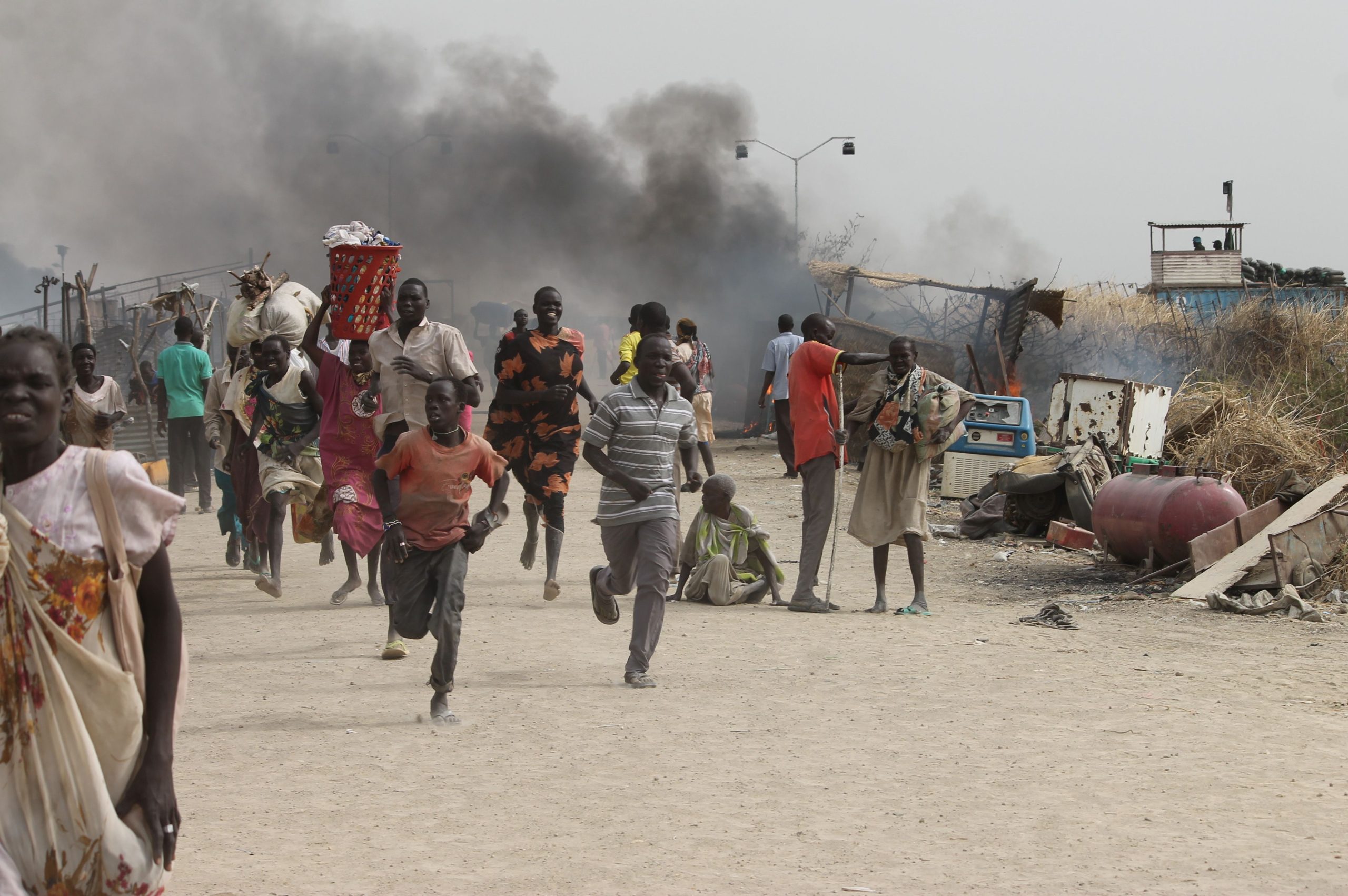We live days that are difficult to describe. Today, the homeland is disintegrating before our eyes, and we are unable to stop the war, which was not a choice of the real Sudanese people who aspire to freedom, peace, and justice, ideals of the glorious December 2018 revolution that ended 30 years of injustice and tyranny.
The image of the icon of the Sudanese revolution, Alaa Saleh, in 2019, is still fresh in our minds, yet we find ourselves again in a fierce war that attests to the failure of efforts to establish a civil state and transition toward democracy the Sudanese people have always desired. Today, we evoke the effects of the conflicts in the former regime, especially in Darfur, that led to genocide, human rights violations, unprecedented asylum seekers and displacement, which is now followed by the flight of nearly 100,000 Sudanese who crossed the borders during the past weeks. According to projections issued by the UN, some 800,000 people will flee the war in the coming period, both Sudanese and refugees that Sudan was hosting. People fled to Egypt, South Sudan, Central Africa, Chad, and Ethiopia, many are now internally displaced, having fled to safer states and cities. but the majority could not escape the scourge of war due to their health, poverty, and a feeling of hopelessness.
Within three weeks of the disastrous, brutal urban warfare in which at least 528 people were killed and 4,599 injured, and counting, Khartoum areas where people used to live safely turned into battlegrounds, and the war has spread to Darfur and Kordofan. Life was disrupted, families are terrified in their homes, electricity and water were cut off, and several hospitals were destroyed so far, while many closed due to a lack of supplies and power outages. Workers in the health sector run security risks, which limit their ability to help, and this only exacerbated the suffering of patients and pregnant women who lack health care or maternity hospitals.
Some women also said they need help as they are exposed to physical violence and rape due to lack of security, there are attacks on citizens’ homes that are then occupied by armed groups, looting of houses and banks, burning of factories and markets, and destruction of the electricity and water infrastructure. An increasing number of people disappeared when leaving their homes, prompting the largest number of people to close their shops and places of work, and earning an income has become impossible, especially for women who support their families, such as tea and food sellers, whose livelihood has completely stopped.
I recall every minute of the calls and pleas of the families: “We are thirsty, there is no water”, “we are hungry, there is no food”, “we are afraid of the bombing”, “My father is sick, and he cannot find medicine”, “ my mother is locked in her house and we cannot get her out” and a family died as a result of a bomb that fell in their house.
In light of the accelerating pace of painful events, we join our voices to those of the local, regional and international community and ask the parties to the conflict to reach a complete and permanent ceasefire in order to reduce human suffering and allow the provision of support to the affected vulnerable families; in order for aid to be delivered there is need of an immediate ceasefire and security guarantees for relief workers who deliver aid.
Also needed is much-needed funding, a questionable possibility in view of the large-scale evacuation of foreign communities whose embassies closed and whose citizens were repatriated, which makes it difficult to consolidate peace efforts, mediate on the ground and protect civilians, including women and children.
In view of the above, I appeal to peace-loving peoples, civil society organizations, and women’s organizations to show solidarity with the people of Sudan, especially women, children, the elderly, and the disabled, and ask for the cessation of war.
I also appeal to the UN and the African Union to put pressure on the warring parties and make them abide by international law, to make sure that those who jeopardized the security and stability of the Sudanese people are held accountable, to work to prevent the supply of weapons to the conflicting parties and to preserve Sudan’s wealth from looters and vandals.
The women of Sudan, who stay strong despite the ravaging effects of wars, which hinder their participation in public affairs, have played an essential role in the struggle for human rights. Let us, then, continue to attempt, together, to stop the bloodshed and the destruction of the homeland, and to protect the gains we have so far achieved.
Let us work together to protect women and girls, to be of assistance to refugees of both genders and to displaced Sudanese, wherever they may be.
Despite the bleakness of the current situation, women may once again form the nucleus that works to guarantee the participation of women in the struggle to ensure security and peace, and a better future for Sudan.
- Magda Al-Senussi is a member of the Women Against War movement and of the Board of Trustees of the Arab Renaissance for Democracy and Development (ARDD).


